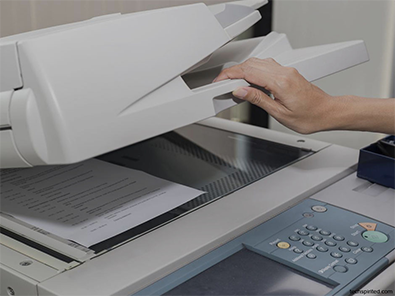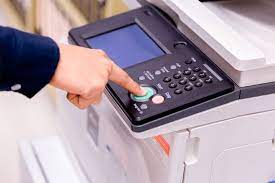Leasing equipment, vehicles, or property is a strategic decision many businesses face, but when it comes down to choosing between a Capital Lease and an Operating Lease, things can get a little complicated.
Both offer unique benefits, but they are vastly different when it comes to financial implications, tax considerations, and long-term impact. Whether you’re a startup in Houston looking for your first office equipment or an established company weighing the pros and cons of each option, understanding the differences between these two types of leases is crucial.
In this blog post, Clear Choice Technical Services will explore everything about Capital and Operating Leases, highlighting their financial and tax impacts and helping you decide which is best for your business.
What is a Capital Lease?
A Capital Lease (sometimes called a Finance Lease) is a lease agreement that financial professionals consider a financial transaction. When you enter into a capital lease, accountants treat the asset you’re leasing as though you’ve purchased it, even though you’re technically only leasing it.
Over time, the asset depreciates just like any other owned property.
Key Features of Capital Leases:
- Ownership Transfer: The lease typically transfers ownership of the asset to the lessee (you) at the end of the lease term for a nominal fee, or you may have the option to buy it for its fair market value (FMV).
- Long-Term Lease: These leases have long terms, often spanning most of the asset’s useful life.
- Depreciation: You can depreciate the asset on your balance sheet, offering tax benefits.
- Obligations: Because capital leases are treated like purchases, you’re responsible for maintenance, insurance, and taxes on the asset.
What is an Operating Lease?
On the other hand, an Operating Lease is essentially a rental agreement. When you lease an asset under an operating lease, you don’t get ownership rights at the end of the lease term. Instead, the lease is more like renting the asset for a short period of time. The asset remains on the lessor’s books, and the lessee only pays for the use of the asset.
Key Features of Operating Leases:
- No Ownership Transfer: At the end of the lease, the asset is returned to the lessor.
- Shorter Term: These leases typically have shorter terms than capital leases, and you can often upgrade to a new asset when the lease ends.
- Off-Balance Sheet: Operating leases generally don’t show up on your balance sheet as liabilities, which benefits businesses that want to keep their liabilities low.
- No Depreciation: Since you don’t own the asset, you can’t depreciate it, but the lease payments are often tax-deductible.
Financial Implications of Capital vs. Operating Leases
1. Capital Lease Financial Impact
When you opt for a capital lease, you essentially finance the asset. This means that:
- Depreciation Deductions: You can deduct depreciation on your taxes over the life of the lease, which can provide a significant financial benefit by reducing taxable income.
- Higher Monthly Payments: Since you are financing the asset’s purchase price, your monthly payments will typically be higher than with an operating lease.
- End of Lease: You typically own the asset outright (or for a very low price) once the lease ends. This means that while your initial payments may be higher, you’re building equity in the asset and can continue to use it for as long as it’s useful.
- Financing Impact: Because a capital lease is treated like a purchase, the total value of the asset and the associated liability will appear on your balance sheet, which could affect your company’s creditworthiness and financial ratios.
2. Operating Lease Financial Impact
With an operating lease, your company is simply renting the asset:
- Lower Monthly Payments: Operating leases tend to have lower monthly payments than capital leases because you’re not financing the full purchase cost of the asset.
- No Asset on Balance Sheet: Because operating leases are considered off-balance-sheet financing, your company’s liabilities will remain lower, which might be beneficial for maintaining favorable debt-to-equity ratios.
- Flexibility: Operating leases offer the flexibility to upgrade to newer equipment at the end of the lease term, making them ideal for businesses that need to stay current with the latest technology.
- No Depreciation: Since the asset isn’t owned, you can’t depreciate it for tax purposes, but your lease payments are generally fully deductible as an operating expense.
Tax Considerations for Capital vs. Operating Leases
1. Capital Leases
- Depreciation Benefits: As mentioned, a capital lease allows you to depreciate the asset over its useful life. This can reduce your taxable income and provide significant tax savings.
- Interest Deductions: The interest portion of the lease payments may also be deductible.
- Taxable Income: Capital leases generally have more upfront costs (such as the down payment), but the long-term benefits of tax deductions and eventual ownership can be substantial.
2. Operating Leases
- Lease Payment Deductions: An operating lease’s most significant tax advantage is that the full lease payment is tax-deductible as an operating expense.
- No Depreciation: Since you don’t own the asset, you can’t claim depreciation, but your lease payments reduce taxable income in the year they’re made.
Long-Term Impact on Your Business: Which Lease Is Better for Your Houston Business?
Now that we’ve covered the technicalities, let’s discuss which lease type might be more appropriate for businesses in Houston. Your choice between a capital lease and an operating lease depends on your company’s size, goals, and financial situation.
When to Choose a Capital Lease
- Long-Term Asset Use: A capital lease is a good choice if you plan to use the equipment for many years. You will eventually own the asset, and it’s yours to keep after the lease ends.
- Tax Benefits: A capital lease can provide tax savings by allowing you to take advantage of depreciation deductions.
- Heavy Equipment or Property: Businesses that require heavy machinery, vehicles, or property may prefer capital leases, as these assets will continue to be valuable for many years.
When to Choose an Operating Lease
- Short-Term Use: If you only need the equipment or vehicle for a short period (e.g., technology that will soon be outdated), you might consider an operating lease.
- Flexibility and Lower Payments: An operating lease makes sense if your company needs to keep its liabilities low and desires flexibility (to upgrade or replace assets). The lower monthly payments also help conserve cash flow.
- Maintenance-Free: With operating leases, the lessor often takes care of maintenance, so your company doesn’t have to worry about ongoing upkeep.
Make the Right Choice for Your Houston Business
Choosing between a capital lease and an operating lease is a big decision, and it all comes down to what your business needs in terms of flexibility, ownership, and tax benefits.
If you’re unsure which lease type best fits your needs, Clear Choice Technical Services of Houston can help! We specialize in helping businesses navigate the complexities of equipment leases, and our expert team can provide guidance tailored to your specific situation.
Don’t let leasing confusion slow down your business. Whether you need advice on capital or operating leases or are looking for ways to optimize your office equipment usage, contact Clear Choice Technical Services today!






